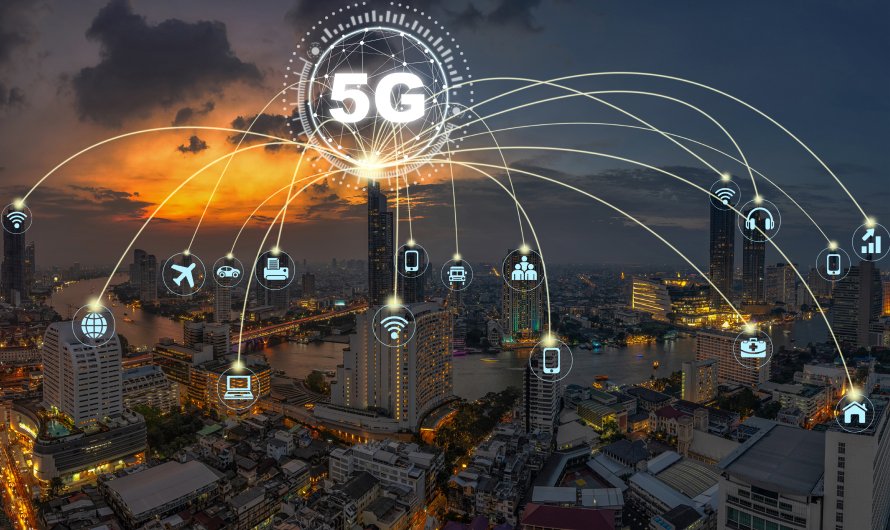5G Technology: What It Means for the Future of Connectivity
What is 5G Technology?
The introduction of 5G technology marks a monumental shift in how we connect to the internet, communicate with each other, and interact with the digital world. With faster speeds, reduced latency, and a higher capacity to connect more devices,. 5G is poised to revolutionize connectivity in ways that were previously unimaginable. In this article, we will explore the key features of 5G, its potential impact on various industries, and what the future holds for this groundbreaking technology.
Understanding 5G Technology
5G, the fifth generation of wireless technology, is the successor to 4G and promises to deliver much faster speeds, lower latency, and the ability to connect a vast number of devices at once. Unlike its predecessors, 5G operates on a different spectrum. Utilizing millimeter waves, small cell technologies, and massive MIMO (multiple input, multiple output) antennas to achieve superior performance. These advancements are set to revolutionize industries ranging from telecommunications to healthcare and beyond.
- Higher Speeds:
5G networks can offer speeds up to 100 times faster than 4G. Allowing for seamless video streaming, faster downloads, and smoother online gaming. - Lower Latency: Latency refers to the delay between sending and receiving data. 5G offers latency as low as 1 millisecond, which is a game-changer for real-time applications like remote surgery and autonomous vehicles.
- Increased Capacity: 5G can support up to 1 million devices per square kilometer, which is essential for the growing number of connected devices in smart cities and the Internet of Things (IoT).
Key Benefits of 5G
- Faster Internet Speeds: Download and upload speeds will drastically improve, which means faster streaming, gaming, and video conferencing.
- Improved Network Reliability: 5G will provide more stable connections, especially in high-density areas such as cities, stadiums, and airports.
- Enhanced User Experience: From smoother video calls to ultra-responsive gaming, 5G technology will create a much better user experience.
How 5G Will Impact Various Industries
1. Healthcare: Remote Healthcare and Telemedicine
One of the most exciting potential uses of 5G is in the healthcare sector. The low latency and high bandwidth of 5G make it possible for doctors to perform remote surgeries and for healthcare providers to deliver telemedicine services with more accuracy and efficiency.
Key Impacts on Healthcare:
- Remote Surgery: 5G can support real-time video feeds and control of surgical robots, enabling surgeons to perform operations remotely with high precision.
- Telemedicine: Virtual consultations will become more reliable, and doctors can monitor patients in real-time using wearable devices.
- Smart Healthcare Devices: With 5G, more healthcare devices can connect to the internet and send data instantly, improving patient care and reducing hospital visits.
2. Autonomous Vehicles: The Road to Self-Driving Cars
Autonomous vehicles are another area that will benefit greatly from 5G technology. The high speeds and low latency of 5G will enable vehicles to communicate with each other, traffic signals, and road sensors in real time. This can improve safety and efficiency on the road while helping autonomous vehicles make decisions faster.
Key Impacts on Autonomous Vehicles:
- Real-Time Communication: 5G allows vehicles to communicate with each other and infrastructure, providing data such as traffic conditions, road hazards, and weather forecasts instantly.
- Improved Safety Features: Faster data transmission ensures that safety features such as emergency braking and lane-keeping assistance work more effectively.
- Enhanced Vehicle Automation: Autonomous cars will rely on 5G for critical data to operate independently, reducing human error and improving traffic flow.
3. Smart Cities: Transforming Urban Infrastructure
5G technology will be a catalyst for the development of smart cities. The increased capacity and connectivity offered by 5G networks will allow cities to incorporate smart infrastructure, such as smart traffic lights, waste management systems, and surveillance cameras, into their daily operations.
Key Impacts on Smart Cities:
- Smart Traffic Management: 5G will help cities manage traffic more effectively, reducing congestion and improving public transportation.
- Enhanced Public Safety: Smart surveillance systems powered by 5G will allow cities to detect criminal activities and respond faster to emergencies.
- Efficient Resource Management: 5G will enable real-time monitoring of resources like water, electricity, and waste, making it easier to manage and conserve them.
The Future of 5G: What’s Next?
1. Expansion of 5G Networks
While 5G technology has already begun to roll out in major cities, its global adoption is still in progress. In the future, 5G will become more widely available, providing faster internet and better connectivity in rural and underserved areas.
2. Advancements in IoT (Internet of Things)
The Internet of Things (IoT) is set to grow exponentially with the implementation of 5G technology. The ability to connect billions of devices without compromising speed or reliability will enable innovations in home automation, smart cities, and industrial automation.
3. More Immersive Experiences with VR and AR
As 5G speeds increase, the possibilities for Virtual Reality (VR) and Augmented Reality (AR) are becoming more exciting. Faster and more stable connections will allow for more immersive experiences in gaming, education, and entertainment.
Conclusion: 5G is the Future of Connectivity
The advent of 5G technology will transform the way we live and work. Its potential to revolutionize industries like healthcare, transportation, and urban planning is immense. With faster speeds, lower latency, and increased capacity, 5G will pave the way for innovations that we are only beginning to explore. As 5G networks continue to expand. the future of connectivity is brighter than ever.



0 Comment